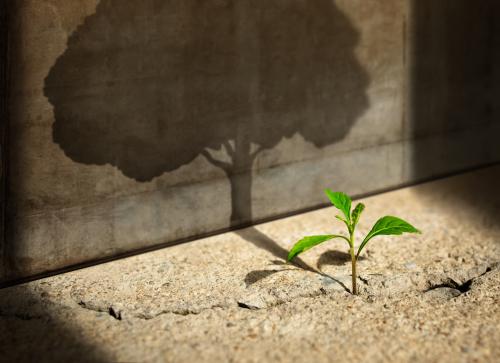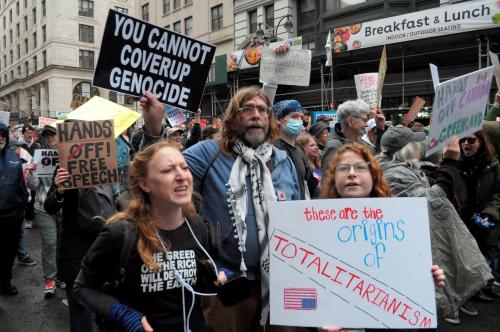Professor Riek Machar, former vice president of South Sudan and now leader of the rebel group that is fighting the government of South Sudan for control of the apparatus of the government, has publicly threatened to capture and take control of both the capital city of Juba and the oil-producing regions of the country. Branding South Sudan’s president, Salva Kiir, a “dictator” and arguing that he does not recognize the need to share power, Professor Machar stated that the present conflict, which has lasted for more than five months and resulted in the killing of many people and the destruction of a significant amount of property, will not end until Kiir is chased out of power.
Violent mobilization by groups loyal to Machar against the government in Juba began in December 2013. It was only after bloody confrontations between the two parties that targeted civilians based on their ethnicity had resulted in the deaths of many people (creating a major humanitarian crisis) that a cease-fire agreement was signed in Addis Ababa on January 23, 2014, with the hope of bringing to an end the brutal fighting. The cease-fire, however, was seen only as the first step towards negotiations that were supposed to help the country exit the violent conflict and secure institutional arrangements capable of guaranteeing peaceful coexistence.
If Machar and his supporters have the wherewithal to carry out the threats and successfully do so, there is no guarantee that peace would be brought to the country. For one thing, any violent overthrow of the government would only engender more violence as supporters of Kiir and his benefactors are likely to regroup and attempt to recapture their lost political positions. What South Sudan badly needs is an institutionalization of democracy and not a government led by political opportunists. In fact, an effective strategy to exit from this incessant violence must be centered around the election of an inclusive interim government—minus both Kiir and Machar—that would engage all of the country’s relevant stakeholders in negotiations to create a governing process that adequately constrains the state, establishes mechanisms for the peaceful resolution of conflict, enhances peaceful coexistence, and provides an enabling environment for the rapid creation of the wealth needed to deal with poverty and deprivation.
On March 9, 2012, less than a year after South Sudan gained independence, then-Vice President Machar met with several Brookings scholars, including myself, in New York City. The meeting was part of the new country’s efforts to seek assistance from its international partners to address complex and longstanding development challenges, including critical issues such as the effective management of the country’s natural resource endowments, gender equity, the building of government capacity to maintain law and order, the provision of other critical public goods and services, and poverty alleviation. Among participants in this critical consultation were Mwangi S. Kimenyi, senior fellow and director of the Africa Growth Initiative (AGI) at the Brookings Institution; Witney Schneidman, AGI nonresident fellow and former deputy assistant secretary of state for African Affairs; and me. The vice president, who appeared extremely energetic and optimistic about prospects for sustainable development in the new country, requested an analysis of the commitments and achievements that the government of South Sudan had made since independence and suggestions for a way forward. The scholars, working in close collaboration with their colleagues at Brookings, produced a policy report requested by the vice president. The report entitled, South Sudan: One Year After Independence—Opportunities and Obstacles for Africa’s Newest Country, was presented at a well-attended public event on July 28, 2012. Panelists included Peter Ajak, director of the Center for Strategic Analyses and Research in Juba; Ambassador Princeton Lyman, U.S. special envoy for South Sudan and Sudan; Nada Mustafa Ali scholar at the New School for Social Research; Mwangi S. Kimenyi and me.
The report provided a comprehensive review of the policy issues requested by the vice president—the provision of basic services; future engagement between South Sudan and the Republic of Sudan; efficient and equitable management of natural resources; ethnic diversity and peaceful coexistence; federalism; eradication of corruption; and the benefits of regional integration. Most important is the fact that the report placed emphasis on the need for the government of South Sudan to totally reconstruct the state inherited from the Khartoum government through democratic constitution making and produce a governing process that (i) guarantees the protection of human and fundamental rights, including those of vulnerable groups (e.g., women, minority ethnic groups); (ii) adequately constrains the government (so that impunity, corruption and rent seeking are minimized); (iii) enhances entrepreneurial activities and provides the wherewithal for wealth creation and economic growth; and (iv) establishes mechanisms for the peaceful resolution of conflict and creates an environment within which all of the country’s diverse population groups can coexist peacefully.
Unfortunately, when the report was completed, members of the ruling Sudan People’s Liberation Movement were already embroiled in a brutal power struggle that eventually led to President Kiir sacking his entire cabinet, including the vice president. The collapse of the government raised the prospects of violent and destructive mobilization by groups that felt the president’s actions were marginalizing them both economically and politically. The ensuing chaos created an environment that was hardly conducive to the implementation of policies such as those presented in the Brookings report.
The government of Sudan has failed to engage in the type of robust institutional reforms that would have effectively prevented President Kiir and his government from engaging in the various opportunistic policies that have been partly responsible for the violence that now pervades the country. South Sudan’s diverse ethnic groups put forth a united front in their war against Khartoum for self-determination. Following independence, the new government engaged in state formation processes that did not provide mechanisms for all individuals and groups to compete fairly for positions in the political and economic systems. Instead, the government’s approach to state formation politicized ethnic cleavages and made the ethnic group the basis and foundation for political, and to a certain extent, economic participation. This approach has created a “sure recipe for breeding ethnic antagonism,” and has led to the crisis that currently consumes the country.
While the most important policy imperative in South Sudan today is the need to make certain that the cease-fire continues to hold, long-term prospects for peaceful coexistence and development call for comprehensive institutional reforms to provide the country with a governing process that guarantees the rule of law. Hence, both the opposition and the government—the two sides in the present conflict—should take advantage of the cease-fire and start putting together the framework that will eventually be used to put the state back together. A new interim government, without the participation of the two protagonists—Kiir and Machar—should be granted the power to bring together all of the country’s relevant stakeholders to reconstitute and reconstruct the state, including negotiating a permanent constitution.
The Brookings Institution is committed to quality, independence, and impact.
We are supported by a diverse array of funders. In line with our values and policies, each Brookings publication represents the sole views of its author(s).




Commentary
South Sudan: The Failure of Leadership
April 21, 2014